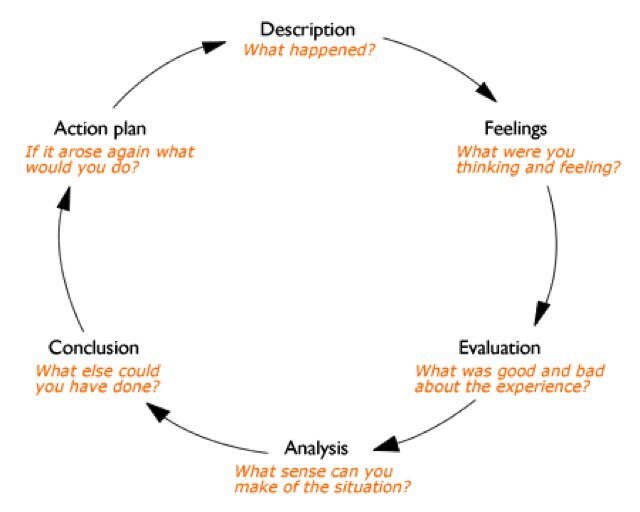Reflective writing is an individual manner of writing. This type of writing is common when you are asked to reflect upon and essentially think (scrutinize and determine in context of the theory) about the objectives and practices that identify with you personally. Its purpose is to assist you in enhancing your understanding of the course material, assist you in making links between your previous and present learning and to shed light on the connection between theory and practice.
You are able to write paragraphs first to highlight your opinions (understanding/scrutiny) and then support it with evidence as illustrated in Example1. Likewise, you can explain the theory first to create a base for your subsequent opinion as in Example 2. However, it you fail to link your opinions with the theory then they lack credibility as exemplified in Example 3.
Characteristics of reflective writing language
- When you are reflecting, you are entitled to write in first person. This implies that you can incorporate yourself (I, me, we) when expressing your personal experiences, views and thoughts in your writing.
- It is imperative for you to write in third person when referring to a theory or views of other writers. This implies that you should refer to writers other than yourself by name rather than using I or me.
- While reflecting the deeds (verbs) are normally those of reasoning and emotions like feeling, felt, considered, experienced, wondered, remembered, discovered and learned.
- If you find that your opinion is not so convincing while reflecting, you can adjust and soften the action by via words like may, perhaps or might.

Example 1: Your views(understanding/scrutiny) succeeded by supporting theory
Observe how the paragraph structure is utilized to:
|
Actions of thoughts and emotions
On reflection, I became conscious that my principles seem to clash with each other. On principle is that monetary security brings happiness. Another of my core belief is that education is essential. These core beliefs are conflicting because the second (education) stops me from accomplishing the first (security from economic gains). As Egan (1977, p.12) describes, conflicts occur if a different set of core values comes in the way of another. This clash of core values most likely explains why I feel depressed and anxious about joining university. |
Example 2 :Theory succeed by interpretation/evaluation
Observe how the paragraph structure is utilized to:
|
Theory so there is no use of language of people for instance I, we Self-disclosure is a critical component in initiating good communications in an intimate relationship. According to Johnson (1999, p.45), self-disclosure is the initiative about informing people about oneself. It frequently occurs in a relation based on mutual trust is involved In the initial stages of my relationship with my partner I felt that trust was the cornerstone of a good relationship and I began to disclose myself. I recall being apprehensive about disclosing the mistakes, I had made during my adolescent. However, my partner accepted this and was not judgemental. I feel that this has probably a catalyst in developing good communication in your relationship.
Note how the language adapts with the judgement |
Example 3: Reflection/appraisal but no readability
| Here the writer express his thoughts and feeling but they do not in context to the theory | The basis for choosing this relationship for scrutiny is that it fascinates me on how two individuals can become close friends when all individuals have in common is this friendship. Ours is a rear friendship in that we are both unfailing honest with each other. There are times when we surprise each other with our depth of obligation with the truth and at the candid nature in which we express it. What is the explanation for this appraisal? |


